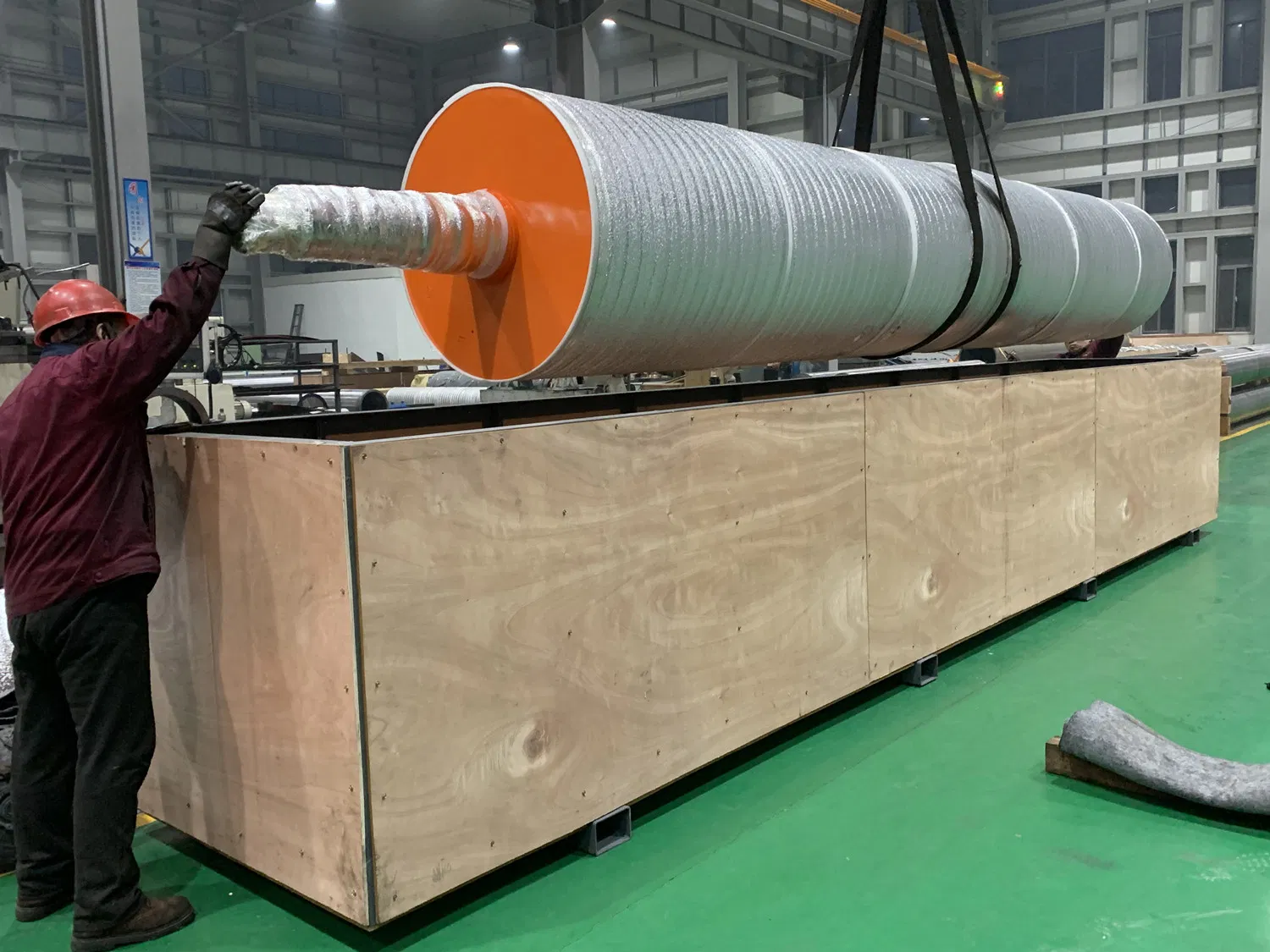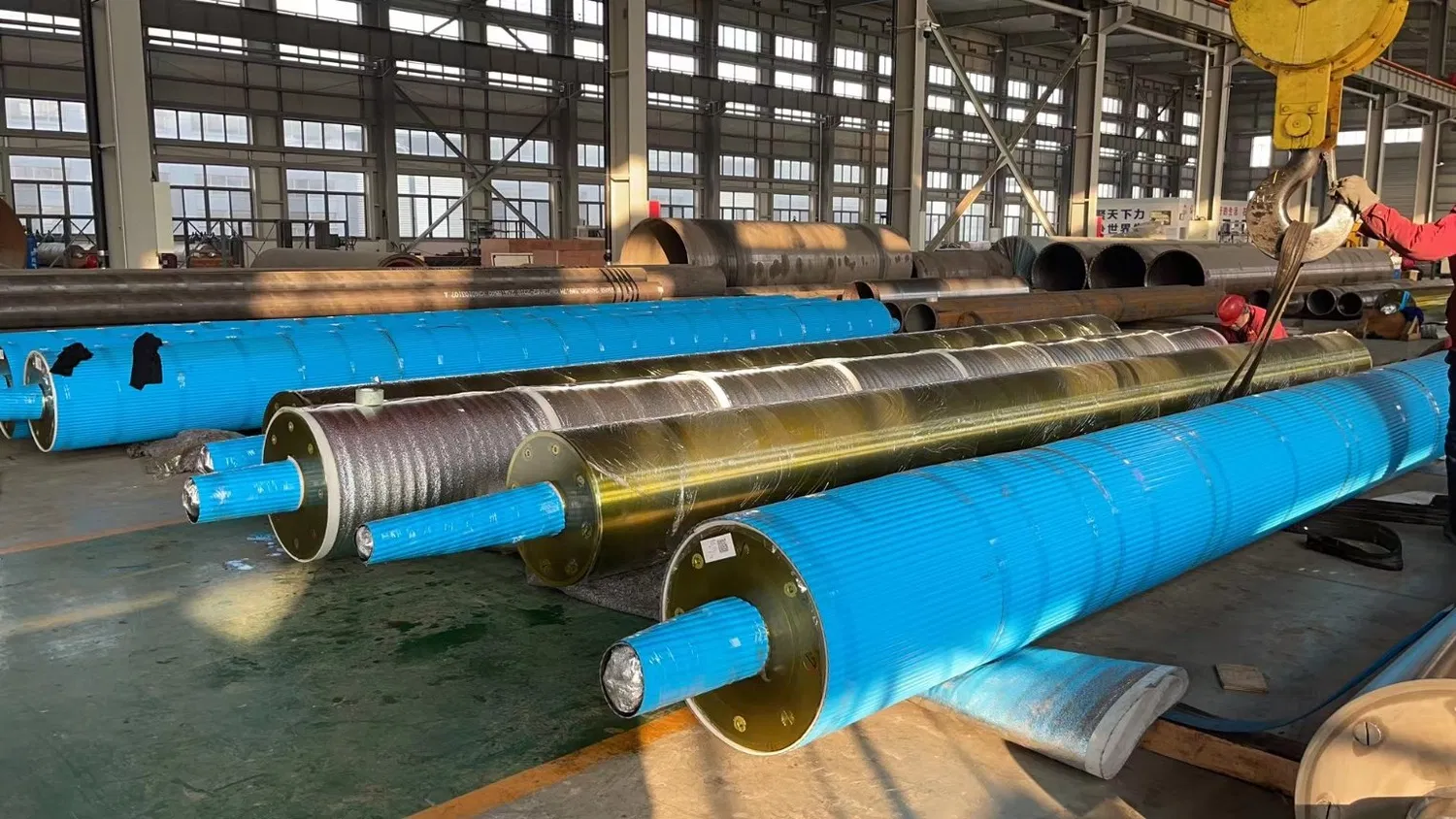In the high-stakes, high-speed world of papermaking, every single component matters. The entire operation, from the wet end to the winder, is a symphony of synchronized machinery working under immense pressure and at incredible speeds. But let’s be honest, some components are more critical than others. At the very heart of your production line are the paper machine rolls. They guide, press, dry, and finish the sheet. When they work perfectly, they are the unsung heroes of a profitable mill. When they fail, they bring the entire symphony to a screeching, costly halt.
This is why the process of selecting a Paper machine roll supplier is so much more than a simple procurement task. It’s a strategic partnership. You’re not just buying a piece of steel or a composite core; you're investing in reliability, precision, and the expertise that keeps your mill running at peak performance. The right supplier can be the difference between meeting your targets and facing catastrophic downtime. The wrong one? Well, that’s a story no mill manager wants to tell.
The Unsung Heroes: Understanding the Critical Role of Paper Machine Rolls
Before we dive into how to choose a supplier, it’s worth taking a moment to appreciate the sheer complexity and importance of these components. Have you ever stopped to think about the incredible journey a paper sheet takes through the machine? It’s a marvel of engineering, and rolls are the primary actors in this drama.
What Are Paper Machine Rolls? A Quick Primer
At its most basic, a paper machine roll is a cylindrical component used to carry the paper web, apply pressure, transfer heat, or impart a specific finish. But that simple definition belies their diversity. A roll in the forming section operates in a completely different environment than one in the dryer section or the final calendar stack. Their design, materials, and coverings are all meticulously engineered for a specific function.
In my experience, a fundamental misunderstanding of this diversity is where problems often begin. A purchasing agent might see "roll" on a spec sheet, but an engineer sees a complex system with unique demands.
Why Every Roll Matters: From Forming to Finishing
To truly appreciate the need for a specialist supplier, let's walk through the machine:
- Forming Section: Here, rolls like the breast roll, forming rolls, and couch roll operate in a high-moisture environment. They need exceptional corrosion resistance and stability to support the delicate, newly-formed sheet.
- Press Section: This is where the brute force happens. Press rolls, including suction press rolls and blind drilled rolls, are designed to squeeze massive amounts of water from the sheet under extreme pressure. They require incredible structural integrity and specialized coverings that can withstand this constant load without damaging the paper web.
- Dryer Section: In this hot, humid section, dryer cans and felt rolls must provide efficient heat transfer while guiding the sheet and felt. Thermal stability and precise engineering are non-negotiable to prevent sheet breaks and ensure uniform drying.
- Finishing Section (Calender/Reel): Finally, calendar rolls apply pressure and friction to control the paper's final thickness, smoothness, and gloss. These rolls demand flawless surface finishes and incredible dimensional accuracy. A tiny imperfection here can ruin an entire parent roll of paper.
Each of these rolls is a masterpiece of engineering. A top-tier supplier understands these nuances not just in theory, but in practice.

Key Qualities of a Top-Tier Paper Machine Roll Supplier
So, what separates a mere vendor from a true strategic partner? It’s not just about price or lead time, although those are factors. Frankly speaking, the best suppliers offer a blend of technical prowess, manufacturing excellence, and unwavering support. They become an extension of your own engineering team.
Beyond the Product: Technical Expertise and Consultation
A great supplier doesn't just take your drawing and give you a quote. They engage with it. They ask questions. They might suggest a material change to improve wear life or a modification to the crown profile to solve a persistent moisture issue. This consultative approach is invaluable. They should be able to discuss topics like:
- Dynamic Balancing: Ensuring rolls can operate at high speeds without vibration that could cause barring or sheet defects.
- Critical Speed Analysis: Calculating the rotational speed at which a roll becomes unstable, ensuring your operational speeds are well within a safe margin.
- Stress and Deflection Analysis (FEA): Using software to simulate the loads on a roll to guarantee its structural integrity.
This is where the need for custom paper machine rolls comes into play. A one-size-fits-all approach rarely works in a modern paper mill. You need a partner who can engineer a solution tailored to your specific machine, paper grade, and production goals.
Material Science Mastery and Advanced Coverings
The performance of a roll is fundamentally tied to the materials it's made from. A leading supplier will have deep expertise in metallurgy and polymer science. They should be able to source and certify materials, from specialized steel alloys and stainless steel to lightweight carbon fiber composites. Material traceability isn't a luxury; it's a necessity for quality control.
Furthermore, the roll covering is just as important as the core. When choosing a roll covering supplier, whether integrated with the roll manufacturer or a separate partner, you need to look for expertise in modern polymers like polyurethane, rubber composites, and advanced ceramics. The right covering can dramatically improve water removal, extend felt life, and enhance the final paper quality.
Precision Engineering and Manufacturing Capabilities
All the theoretical knowledge in the world means nothing if it can't be translated into a perfectly manufactured product. A world-class facility will have:
- CNC Machining Centers: For precise turning, grinding, and drilling to incredibly tight tolerances.
- Advanced Grinding Equipment: Capable of producing specific crown profiles and flawless surface finishes (measured in Ra, or Roughness Average).
- In-house Balancing Machines: To perform dynamic balancing to stringent ISO standards.
- Rigorous Quality Control: Including non-destructive testing (NDT) like ultrasonic and magnetic particle inspection to detect any subsurface flaws in the raw materials or welds.
Navigating the Maze: A Practical Guide to Vetting Suppliers
Finding the right supplier can feel daunting. There are many companies that claim to be experts. So, how do you cut through the noise and find a partner you can truly trust? It requires a methodical approach.
Step 1: Defining Your Specific Needs
Before you even send out a Request for Quotation (RFQ), do your homework. What is the exact problem you're trying to solve? Are you replacing a roll like-for-like, or are you looking for an upgrade to improve performance? Gather all relevant data: original drawings, operational speeds, loading pressures, paper grades, and any history of past failures. The more detailed you are, the better the proposals you'll receive.
Step 2: The Initial Outreach and RFQ
Cast a wide but targeted net. Look for suppliers with a proven track record in the pulp and paper industry. Your RFQ should ask for more than just a price. Request information on their manufacturing process, quality control procedures, material sourcing, and examples of similar projects.
Step 3: Evaluating Technical Proposals and Certifications
This is where you separate the contenders from the pretenders. A quote is just a number. A strong technical proposal is a window into the supplier's competence. Do they address all your requirements? Do they offer insights or suggestions? Look for certifications like ISO 9001, which indicates a commitment to a formal quality management system. It's worth noting that a low bid accompanied by a thin technical proposal is often a major red flag.

Step 4: Don't Skip the Site Visit or Reference Checks
If possible, visit the facilities of your top two or three candidates. Seeing their equipment, processes, and team in person is incredibly revealing. In my experience, a supplier who is proud of their shop will be eager to show it to you. If they are hesitant, that tells you something, too.
Equally important, ask for references—and actually call them. Talk to other mill managers or engineers who have worked with the supplier. Ask them about on-time delivery, product quality, and, most importantly, how the supplier responded when things went wrong. Because eventually, something always does. It’s their response in those critical moments that reveals their true character as a partner.
The Hidden Costs of a Bad Supplier & The ROI of a Great One
Choosing a supplier based solely on the initial price tag is one of the most common and costly mistakes a mill can make. The true cost of a paper machine roll extends far beyond its purchase price.
Downtime, Defects, and Damaged Reputations
Consider the consequences of a premature roll failure. The cost of unplanned downtime in a paper mill can run into tens of thousands of dollars per hour. Add to that the cost of the damaged felt or neighboring equipment, the wasted product, and the labor for the emergency change-out. A single failure caused by poor manufacturing or substandard materials can easily wipe out any initial savings from a "cheaper" roll ten times over.
Beyond the immediate financial hit, there's the damage to your production schedule and, potentially, your reputation with customers if you can't deliver on time.
The Long-Term Value: Efficiency, Quality, and Peace of Mind
Conversely, a high-quality roll from a reputable supplier pays for itself over and over again.
- Increased Uptime: Reliable rolls mean fewer unplanned shutdowns and longer campaigns between scheduled maintenance.
- Improved Paper Quality: Precision-engineered rolls lead to a more uniform sheet profile, better finish, and fewer defects.
- Enhanced Efficiency: A well-designed press roll can improve dewatering, reducing the energy load on the dryer section—the most energy-intensive part of the machine.
- Proactive Maintenance Partnership: A great supplier is also a partner in paper mill roll maintenance. They provide detailed documentation, offer roll grinding and recovering services, and can help you develop a predictive maintenance strategy to maximize the life of your assets.
Ultimately, investing in a top-tier Paper machine roll supplier is an investment in operational stability and peace of mind. It allows your team to focus on making paper, not on fighting fires.
The landscape of papermaking is always evolving, and your suppliers should be evolving with it. A forward-thinking partner is not just focused on today’s problems but is actively developing solutions for tomorrow's challenges. When vetting suppliers, ask them about their R&D efforts and their vision for the future of roll technology. This will give you a clear idea of whether they are a leader or a follower. The right choice will not only deliver a quality product today but will help you stay competitive for years to come.
For more detailed information, please visit our official website:Paper machine roll supplier
About the author: Marcus Thorne is a senior pulp and paper industry consultant with over 25 years of hands-on experience in mill operations, process optimization, and capital project management. He specializes in improving machine reliability and efficiency by bridging the gap between engineering theory and shop-floor reality. Marcus is passionate about sharing insights that help mills make strategic decisions that enhance both their productivity and their bottom line. ---


